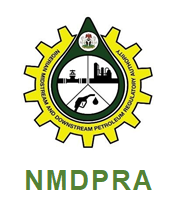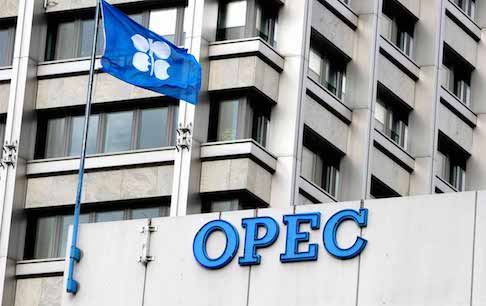Oil & Gas
Energy Transition: Kyari Advocates Justice for Africa

Ahead of the 26th UN Climate Change Conference of the Parties (COP26) in Glasgow, UK, the Nigeria National Petroleum Company (NNPC) has advocated for consideration of “energy justice” in the implementation of energy transition.
The 26th UN COP26 will hold in November 2021, in Scottish city of Glasgow.
Discussions on countries transiting to less carbon-intensive energy sources have gained momentum with global leaders calling for a shift away from fossil fuels as a critical action towards tackling global climate crisis.
Mallam Mele Kyari, Group Managing Director, NNPC, spoke at the 17th All-Nigerian Editors’ Conference in Abuja, according to a statement issued on Friday, by Garba Muhammad, Group General Manager, Group Public Affairs Division, NNPC.
Kyari argued that wholesale execution of energy transition, without regard to peculiar socio-economic conditions of various countries would cause dislocations that could exacerbate the security challenges in developing nations.
Kyari, in a paper entitled “Insecurity as it affects the Oil and Gas sector”, maintained that his concept of energy justice was to allow each country, especially developing nations, to progress at their own pace.
This, according to him, could be achieved while leveraging on their hydrocarbon resources for smooth transition to Net Zero by 2050.
“Talking about energy transition, it is my view that there must be energy justice, which means that countries should develop at their own pace, while taking into consideration the realities that they face.
“Individual nations should be allowed to transit on the basis of their contributions to the carbon emissions to the point that ultimately, there will be justice for all by 2050.
“Energy justice would ensure that as we transit, we are allowed to develop at a pace and in a manner that is just,” Kyari added.
The NNPC CEO also urged the media industry and other stakeholders to champion the cause of energy justice, in the global quest for cleaner energy, stressing that gas development remained the only option for Nigeria to achieve energy transition.
Speaking on NNPC’s refineries and the role they play in ensuring energy security for the country, he said that the NNPC was keen on changing the narrative and getting the refineries back on stream.
This, it would do by taking advantage of the free-hand given to the management by President Muhammadu Buhari to do the right thing, Kyari said, adding, “this is the first time in history that NNPC and its subsidiaries are allowed to do things the way things should be done.
“Now, I can confirm to you that we have taken responsibility and we will fix the refineries. We have started the process, contractors have been mobilised to the Port Harcourt refinery, while the same process for Warri and Kaduna refineries will conclude by the end of this year,” he said.
On the menace of crude oil and products theft, the NNPC CEO said a lot of progress had been made through collaboration with security agencies.
He called for the support of the Nigerian Guild of Editors (NGE) and other stakeholders, towards reducing insecurity within the oil and gas industry.
Earlier, in his address of welcome, the President of the Nigeria Guild of Editors, Mr. Mustapha Isah, said the purpose of the conference was to find solutions to the various security challenges facing the country.
Isah also called on all stakeholders to rise up to the challenges of insecurity, by giving their best in defence of the nation. (NAN)
Oil & Gas
Lawyers Integral to Optimal Regulatory Compliance in Oil Business – NMDPRA

The Midstream and Downstream Petroleum Regulatory Authority (NMDPRA) said the role of legal practitioners is critical across the midstream and downstream energy business value chain in the promotion of optimal regulatory compliance.
Chief Executive, NMDPRA, Farouk Ahmed said this on Monday in Abuja at its 2025 General Counsel and Legal Advisers Forum for Midstream and Downstream Petroleum Companies in Nigeria.
The forum has its theme as ‘Advancing a Collaborative Compliance Culture in Nigeria’s Midstream and Downstream Petroleum Sectors’.
Ahmed was represented by Ogbugo Ukoha, Executive Director, Distribution System, Storage and Retailing Infrastructure, NMDPRA.
He said that the sector’s complexity required a unified compliance culture, rooted in robust and enabling legal frameworks, transparency, accountability and shared responsibility.
“The scope of operations of the sector covers hydrocarbon processing, wholesale marketing, transportation, storage, distribution and retail, and its complexity requires more than technical efficiency.
“The role of legal practitioners is critical across the midstream and downstream energy business value chain.
“They help to promote optimal regulatory compliance to set rules and standards of operations in our complex operational and volatile market environment,’’ he said.
Ahmed said that strategic and pragmatic solutions would be established from the forum to enhance performance of the sector towards creation of shared value for investors and the extensive market of Nigeria and the region.
He said that the Petroleum Industry Act (PIA 2021) had fundamentally restructured Nigeria’s petroleum industry by delineating regulatory responsibilities of the industry into the Upstream, midstream and downstream Petroleum operations.
According to him, the Act prescribed that all operations in the midstream and downstream sectors could only be conducted under appropriate licenses, permits and authorisations granted by the NMDPRA.
He said the PIA also mandated NMPDRA to make regulations concerning midstream and downstream petroleum operations in consultation with its licensees and stakeholders.
“As a result of the feedback received from our stakeholders on the need to strengthen regulatory compliance through simplified regulations, NMDPRA is implementing an inclusive stakeholder process of streamlining the gazetted and published regulations.
“This process will mitigate the complexities of navigating and implementing numerous regulations; eliminate inconsistencies and repetitions across multiple regulations; streamline regulatory processes for ease of business; and encourage investments in the industry.
“Kindly use this forum to critically review and make recommendations on the above.
This will enable us to improve the overall compliance of operators and the performance of the regulatory instruments (Legal frameworks and licenses) in the midstream and downstream sectors,” He said.
He said that NMDPRA would continue its commitment to effective stakeholder collaborations that would foster ease of doing business, investor confidence and sustainable operations.
Deputy Speaker, House of Representatives, Benjamin Kalu said that the PIA as a testament to the foresight and dedication of the National Assembly, had fundamentally reshaped Nigeria’s petroleum sector.
Kalu was represented by Ugochinyere Ikenga, Chairman, House Committee on Petroleum Resources, Downstream.
He said that the act had proven how strategic legislation could serve as a potent catalyst for compliance, investment attraction, and robust sector growth.
“For the PIA to remain truly effective, adapting to a dynamic global energy landscape and addressing unforeseen challenges, there must be an institutionalised robust mechanism for its continuous refinement.
“This is precisely where the invaluable insights of our nation’s petroleum experts and our general counsels, the legal architects and navigators of this complex framework, become indispensable.
“For or further synchronisation and effective post-legislative scrutiny, we must actively solicit and integrate your concerns.
“We envision a future where the National Assembly’s specialised committees regularly invite you professionals to public hearings and dedicated technical working groups,” he said.
Kalu said that this proactive engagement would transform abstract legal principles into tangible operational realities, furnishing us with the real-world data and case studies needed to truly understand the PIA’s strengths and weaknesses.
“Your feedback will illuminate where the PIA might be technically challenging, where legal interpretations create bottlenecks, or where new global trends necessitate legislative evolution,’’ he said.
Oil & Gas
OPEC Launches Campaign for Sustained Global Upstream Investment

Torough David, Abuja
The Organization of the Petroleum Exporting Countries (OPEC) has launched a global investment drive seeking attention to creating value in the upstream oil and gas industry.
The Organization is calling for urgent and sustained investment in the global upstream oil sector, warning that a cumulative $14.
9tn will be required between 2025 and 2050 to meet projected demand and prevent a future energy crisis.This investment figure, equivalent to $574bn annually, represents the bulk of the $18.2 trillion in total oil-related investments needed over the 25-year period.
The OPEC had projected that $18.2tn investment would be required to meet global oil demand between 2025 and 2050, as it dismissed the notion of a looming peak in fossil fuel consumption as a “fantasy.
”According to the 2025 World Oil Outlook of OPEC, oil demand is projected to rise from 103.7 million barrels per day in 2024 to 116.5 mb/d by 2045 and peaking at around 123 mb/d by 2050, an 18.6 per cent increase over 26 years.
It also noted the need for continued investments in various segments of the sector to meet this demand.
It noted that of the total investment requirement, upstream operations, including exploration and production, are expected to gulp the lion’s share at $14.9tn, or $574bn per year, as producers scramble to ramp up supply. Midstream and downstream investments will require $1.3tn and $2tn, respectively.
“Cumulative oil-related investment requirements to meet projected demand are assessed at $18.2tn over the period between 2025 and 2050.
“This is marginally higher than projected in the WOO 2024, as despite the outlook period being one year shorter, this Outlook has also seen long-term oil demand revised upwards, and liquids supply has followed.
“Total upstream investment requirements make up the bulk of the needed capital expenditure, now projected at $14.9tn, or $574bn per annum. Downstream and midstream investment requirements are projected at $2tn and $1.3tn, respectively,” the report said.
OPEC Secretary-General, Haitham Al Ghais, said continued investments are essential to guarantee future energy security and affordability, especially in the Global South.
“There is no peak oil demand on the horizon,” Al Ghais declared in the report’s foreword. “Efforts to rapidly phase out fossil fuels are unrealistic and disregard energy security, affordability, and socio-economic realities of billions still lacking basic energy access,” he said.
Oil & Gas
FG Declares End to Dormant Fields on Oil Production

By David Torough, Abuja
In a renewed push to meet its OPEC production quota and 2025 budgetary targets, the Federal Government yesterday declared an end to the era where oil companies acquire field licenses and leave them dormant.
The government warned that it would no longer tolerate operators lacking the technical and financial capacity to develop oil fields, stressing that such licenses would be withdrawn.
Minister of State for Petroleum Resources (Oil), Senator Heineken Lokpobiri issued the warning at the ongoing 2025 Nigeria Oil and Gas Energy Week in Abuja.
Lokpobiri said the government was determined to maximize oil production by ensuring that only serious investors retain access to Nigeria’s hydrocarbon resources.
The conference had the theme: “Accelerating Energy Progress Through Investment, Global Partnerships and Innovation”.
Lokobiri stated that, “In our ongoing drive to boost national oil production, the Federal Government remains resolute in ensuring that maximum value is derived from upstream assets currently held by operators.
“This objective has taken on greater urgency as global financing for oil and gas projects continues to tighten, making it increasingly difficult for all operators to secure the capital needed to develop these assets.
“It is no longer acceptable for critical national resources to remain in the hands of companies that lack the technical or financial capacity to optimize them or worse, those who use such licenses merely as a lever to access scarce capital, only to divert it to unrelated ventures.
“Our oil and gas industry has witnessed far too many cautionary tales of this nature, and we must now draw a clear line”.
He said the government has engaged an international consultant to evaluate the 273 fees and rates faced by oil companies in the country to align them with international best practices.
Also, the Minister of State Petroleum Resources (Gas), Ekperikpe Ekpo said Nigeria had proven gas reserves of over 200 trillion cubic feet, yet value would only be created when resources were developed and utilised.
Ekpo said that through the Decade of Gas initiative, the country was focused on translating its vast gas wealth into tangible socio-economic benefits.
This, he said, included driving industrialisation, expanding power generation, increasing domestic Liquefied Petroleum Gas (LPG) usage, deepening gas-to-transport adoption, and growing gas export capacity.
Group Chief Executive Officer of NNPC Ltd, Engr. Bashir Bayo Ojulari disclosed that the Ajaokuta-Kaduna-Kano (AKK) Gas Pipeline has successfully crossed the River Niger, boosting the hope of the project’s completion by Q4 2025.
Ojulari, who described the development as a significant milestone, said the feat was achieved through effective and innovative contract reengineering and industry collaboration.
He also disclosed that for the first time in a long while, the nation enjoyed 100% crude oil pipelines availability throughout June 2025.
He said the feat which was possible through the industry-wide security interventions led by the NNPC helped to boost crude oil production.
He however called for more investments to boost production, adding that NNPC Ltd has been able to turn the narrative around by consistently meeting its cash-call obligations to Joint Venture operations.
He said the Petroleum Industry Act (PIA) has placed NNPC Ltd in a good position to live up to its responsibility of leading the industry in financing projects.





















